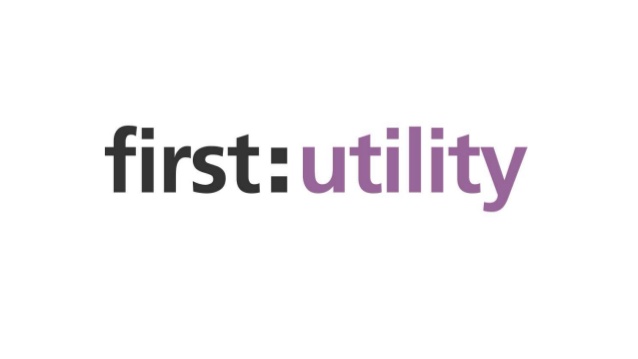
Open Source software has revolutionized the tech world, offering incredible flexibility and collaborative power. But with its growing popularity comes a wave of questions, particularly for businesses considering its adoption. At Sirius, we believe in transparency and empowering our clients with knowledge. Following the "They Ask, You Answer" philosophy, we're tackling the most common Open Source inquiries head-on.
"What Exactly Is Open Source Software?"
Let's start with the basics. Open Source software is, at its core, software with source code that's publicly accessible. This means anyone can view, modify, and distribute it. Unlike proprietary software, where the code is locked away, Open Source encourages collaboration and community-driven development.
Think of it as a recipe shared freely online. You can follow it precisely, adapt it to your preferences, or even contribute your own improvements. This collaborative spirit fosters innovation, leading to robust and adaptable software.
"Is Open Source Software Really Free?"
This is a crucial point of clarification. While the source code is typically free to access, "free" doesn't always translate to zero cost. Implementation, customization, and ongoing support can incur expenses.
However, the cost savings compared to proprietary software can be significant. You avoid licensing fees and vendor lock-in, granting you greater control over your technology.
"What Are the Different Open Source Licenses, and Why Do They Matter?"
This is where things get a bit technical, but understanding licenses is vital. Licenses define how you can use, modify, and distribute Open Source software. Here's a simplified breakdown of some common ones:
- MIT License: Permissive and flexible, allowing almost any use, including commercial.
- Apache License 2.0: Similar to MIT, but with explicit patent grant provisions.
- GNU General Public License (GPL): Requires that any derivative work also be Open Source, promoting a "copyleft" philosophy.
Understanding these licenses is critical for legal compliance. Using Open Source software without adhering to its license terms can lead to serious legal repercussions.
"Can We Use Open Source Software for Commercial Purposes?"
Absolutely! Many businesses thrive on Open Source. The flexibility and cost-effectiveness make it an attractive option. However, it's crucial to understand the implications of the chosen license. Some licenses, like the GPL, might require you to share your modifications if you distribute your software.
"What About Security? Is Open Source Secure?"
Security is a top concern for any business. The "open" nature of Open Source can be both a strength and a perceived weakness. On one hand, the community can quickly identify and fix vulnerabilities. On the other hand, the publicly available code could theoretically be exploited by malicious actors.
However, many Open Source projects have robust security practices and dedicated teams addressing vulnerabilities. Just like proprietary software, security relies on proper implementation, regular updates, and ongoing vigilance.
"How Do We Manage Vulnerabilities and Security Patches?"
Proactive vulnerability management is crucial. Establish a system for tracking updates, applying patches promptly, and regularly auditing your systems. Leverage community resources and security tools to stay informed about potential threats.
"What Are the Potential Risks Associated with Using Open Source Software?"
While the benefits are significant, it's essential to acknowledge potential risks:
- Legal Compliance: Incorrectly interpreting licenses can lead to legal issues.
- Lack of Dedicated Support: Unlike proprietary software, you might not have a dedicated vendor for support.
- Compatibility Issues: Integrating Open Source software with existing systems can sometimes be challenging.
"How Do Companies Make Money with Open Source?"
This is a common question, and the answer is multifaceted. Companies can:
- Offer Support and Services: Provide paid support, training, and consulting for Open Source software.
- Develop Commercial Extensions: Build proprietary add-ons that enhance the functionality of Open Source software.
- Contribute to and Influence Projects: Gain recognition and build brand authority by actively participating in Open Source communities.
- Dual Licensing: Offer both Open Source and commercial licenses.
"How Do We Contribute to an Open Source Project?"
Contributing to Open Source can be a rewarding experience. Start by:
- Identifying a Project: Choose a project that aligns with your interests and skills.
- Reviewing the Contribution Guidelines: Each project has its own guidelines for contributing.
- Starting Small: Begin with bug fixes or documentation improvements.
- Engaging with the Community: Participate in discussions and seek guidance from experienced contributors.
"How Do We Choose the Right Open Source Software for Our Business?"
Selecting the right Open Source software requires careful consideration. Evaluate factors such as:
- License Compatibility: Ensure the license aligns with your commercial goals.
- Community Support: A vibrant community indicates ongoing development and support.
- Security Record: Research the project's security history and vulnerability management practices.
- Features and Functionality: Verify that the software meets your specific needs.
- Future development: Check the project's activity levels. A dead project might pose future problems.
Conclusion: Embracing Open Source with Confidence
Open Source software offers incredible potential for businesses of all sizes. By understanding the key considerations and addressing potential concerns, you can leverage its power to drive innovation and achieve your goals. At Sirius, we're committed to helping you navigate the Open Source landscape with confidence. We believe in transparency, education, and empowering you to make informed decisions. Contact us today to learn how we can help you harness the power of Open Source for your business.
















































